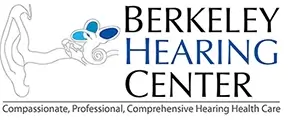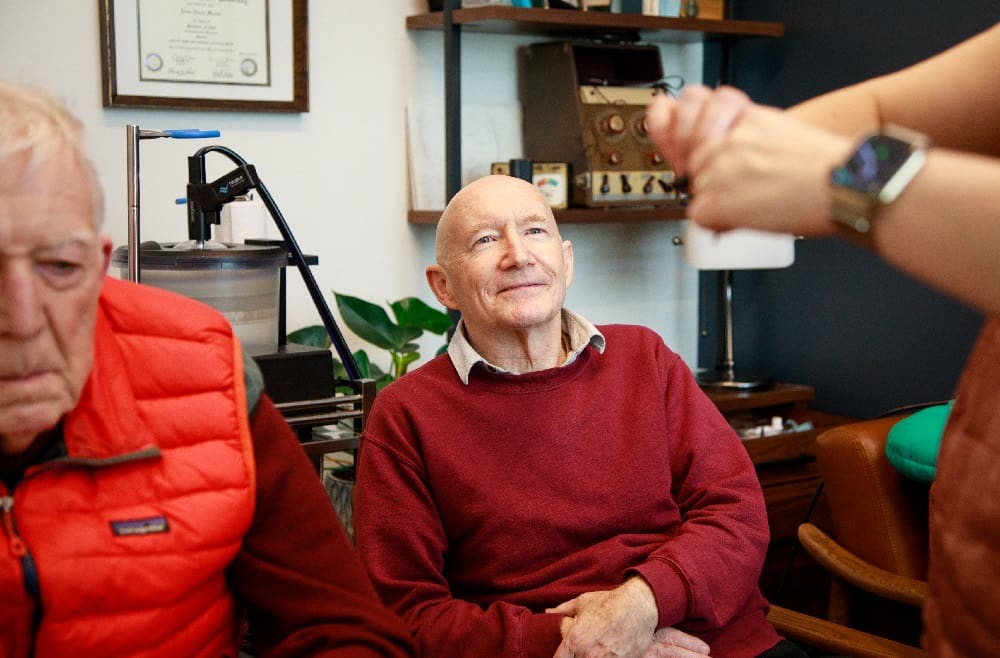2021-02-22
The Team at Berkeley Hearing Center
Hearing aids are truly amazing, life-changing instruments that provide crucial sensory information to those with hearing loss. But these impactful and life-changing medical prosthetics don't last forever. From aging devices and malfunctions to emerging technology, poor fit, and changes in hearing aid requirements, there are plenty of reasons people choose to upgrade their hearing aids.
So, how do you know when it's finally time to say "goodbye" to your current pair of hearing aids?
How Long Will My Hearing Aids Last?
Unsurprisingly, this is a question we hear often. Hearing aids don’t last forever. Like any technology, they start to break down over time.
Generally, we recommend that people look into upgrading their hearing aids every five years. — although some folks will upgrade earlier than that and some later.
The overall “mileage” of your hearing aid depends on a variety of factors, including:
Manufacturing quality
Brand and type/style
How often you use your hearing aid
The amount of wear-and-tear your hearing aid is subjected to regularly.
Maintenance habits
Acute events like water damage, accidental drops, or device loss
Remember, hearing aids aren't like everyday household electronics in stable, temperature-controlled, and relatively static conditions. Since your hearing aids are your constant companion, they’re subject to the same extremes you experience: temperature, wind, rain, dust/debris, ear wax as well as the occasional drop on the floor.

When is it Time to Upgrade?
The right time to upgrade is whenever it makes the most sense for the individual. For some fortunate individuals, it is when their insurance benefit renews — which is typically every three years.
For others, four to five years is the "sweet spot," as this is the time frame where technology has significantly shifted to the point where users notice a significant improvement over their current hearing aids.
Each year, innovative, stylish, and comfortable new devices are introduced into the hearing healthcare market, and many of them bring along new capabilities and functions. These recent advancements may be ideal for your hearing situation — but weren’t available when you purchased your current hearing aids. For still others, maybe their hearing has noticeably shifted. Data obtained by the National Institute on Deafness and Other Communication Disorders suggests that one-third of adults over the age of 65 will experience age-related hearing loss.
This is a degenerative condition that persists throughout your life.
You may find that your current hearing aids fail to adequately address your hearing issues after a few years. That's perfectly normal!
We highly recommend that you engage with your audiologist for regular and timely hearing exams to determine any changes in your hearing.
Finding the Perfect Hearing Solution For Your Unique Needs
Hearing loss is a serious health condition with ramifications beyond just the obvious communication breakdowns. Often, people with hearing loss experience loneliness, social isolation, cognitive decline, anxiety, and depression. As you know, your hearing aids are the bridge that connects you to life and loved ones. But they don't last forever or help as much as they might have in the past. Users should consider upgrading hearing aids every few years, as their situation allows. Our experienced audiologists at Berkeley Hearing Center will analyze your hearing loss and inspect your hearing aids for damage or poor performance.
We provide a wealth of hearing aid solutions — including the newest and most innovative hearing aids on the market — for our patients.
If you decide to upgrade, you can keep your old hearing aids as a backup, or we can take them, refurbish them, and donate them to those who would not otherwise be able to afford them. Our new hearing aids also come with a minimum guaranteed future trade-in value — making the upgrade process easier and more financially compatible. Contact us to schedule an appointment for a hearing exam. Let's find you hearing aids that truly transform your life.
The Team at Berkeley Hearing Center






